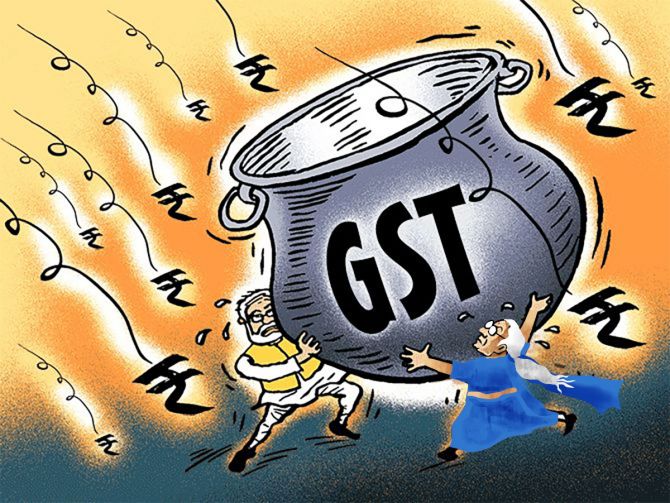The process of calling taxpayers to record their statements continues to be lengthy and tedious, defeating the intent of the GST legislation.

With Goods and Services Tax (GST) officers under pressure to exceed the Rs 1-trillion collection mark per month, industry has faced a barrage of recovery notices and summons issued over the last one month across sectors, according to company executives.
Industry bodies have claimed harassment by field officers, blocking of input tax credit, cancellation of GST registration, threats of arrest and steep penalties, impacting their working capital and operations.
Company executives pointed at an atmosphere of apprehension and fear due to such notices and summons.
Industry has made representations to the Department of Revenue and the Central Board of Indirect Taxes and Customs (CBIC) over the recent increase in summons and notices.
According to people in the know, the process of calling taxpayers to record their statements continues to be lengthy and tedious, defeating the intent of the GST legislation.
Business Standard reviewed several summons and notices pertaining to a range of issues including input tax credit (ITC) mismatch and cancellation of GST registration.
Top officials of CBIC were not immediately available for comment.
“You are hereby summoned under the section 70 of the Central GST Act, 2017, to appear before me in person…. to give evidence as you may be asked and to produce documents and records mentioned in the schedule below for examination, failing which necessary action will be initiated as per law,” read one of the summons.
When contacted, a GST official, who did not want to be named, said any enforcement action was based on deep data analytics.
"Notices and summons are issued when the system flags mismatches in input tax credit or when there are instances of possible evasion by taxpayers."
But companies, on the condition of anonymity, pointed out that in some instances CEOs and CFOs were being summoned to appear before the GST authority and asked to immediately pay up.
Some industry players said there were cases of officers communicating with taxpayers using their person email IDs, rather than official email.
According to industry sources, the language used in summons was not in sync with the format prescribed by the finance ministry.
GST authorities are issuing notices containing denial of input tax credit and in many cases they are blocking the entire input tax credit, even if only one vendor fails to deposit GST.
“This is resulting in huge losses for companies.
"The companies could, at best, be required to do due diligence, which includes verifying the GST details of the vendor from the portal. However, blocking entire ITC due to the fault of one vendor is an extreme step,” said a finance head of a company.
One of the representations made to the government talks about how search and raids are sometimes being conducted on grounds such as non-filing of GST return for a couple of months.
According to Pratik Jain, partner, Price Waterhouse & Co, while the authorities have the right to carry out the investigation and issue summons, if needed, distinction should be made between cases of wilful evasion/ fraud and interpretation related issues.
“In the latter case, the purpose of investigation should be to collate facts and facilitate issuance of show cause notice or any other action that may be warranted.
"The summons should not be issued in routine matters,” said Jain.
He added that one would expect the government to come up with clear guidelines on these aspects.
An industry body representative pointed out that despite digitalisation of the GST law, the enforcement agency continues to issue notice/summons for enquiry/investigation without checking if the documents and the returns are already filed.
For instance, summons are being issued to call for GST returns that are already filed on the GST portal. In other cases, summons are being issued calling for documents which are not even in possession of the taxpayers such as form GST 2A, which is self-populated auto generated documents on the GST portal, said an industry source.
M S Mani, partner, Deloitte India said while summons may be necessary in cases where tax evasion is likely, the issue of summons to businesses in many cases, instead of a letter seeking information, makes them devote significant time, resources and costs for the activities involved in responding to the summons.
Tanushree Roy, director, Nangia Andersen, said there was indeed a surge in the inspection and search of assesses by the GST Authorities across India.
“…While such steps by the GST Authorities ensure that defaulting assesses do not go unpunished, bonafide assesses face difficulties on account of such actions which ultimately result in disputes/litigation,” said Roy.
Rajat Mohan, senior partner, AMRG & Associates, said the post-pandemic era seemed to be more draconian for businesses as they’re under a constant threat of harassment, coercion, and arrest on flimsy grounds.












 © 2025
© 2025